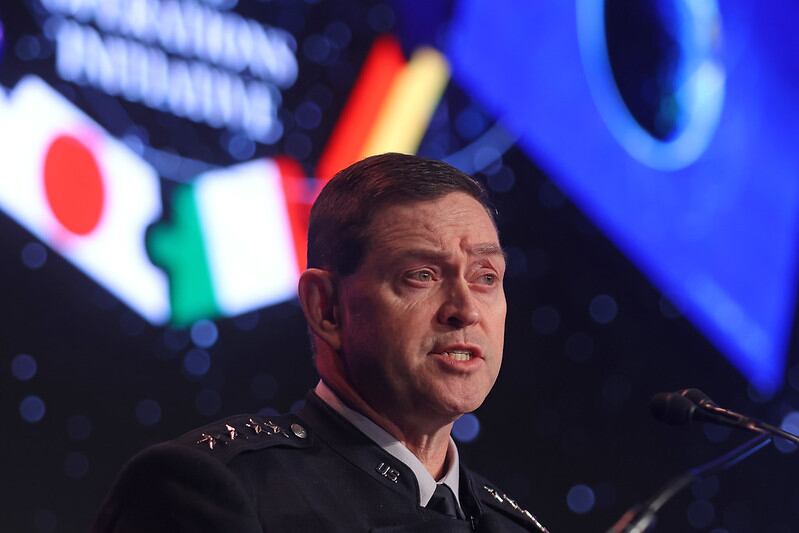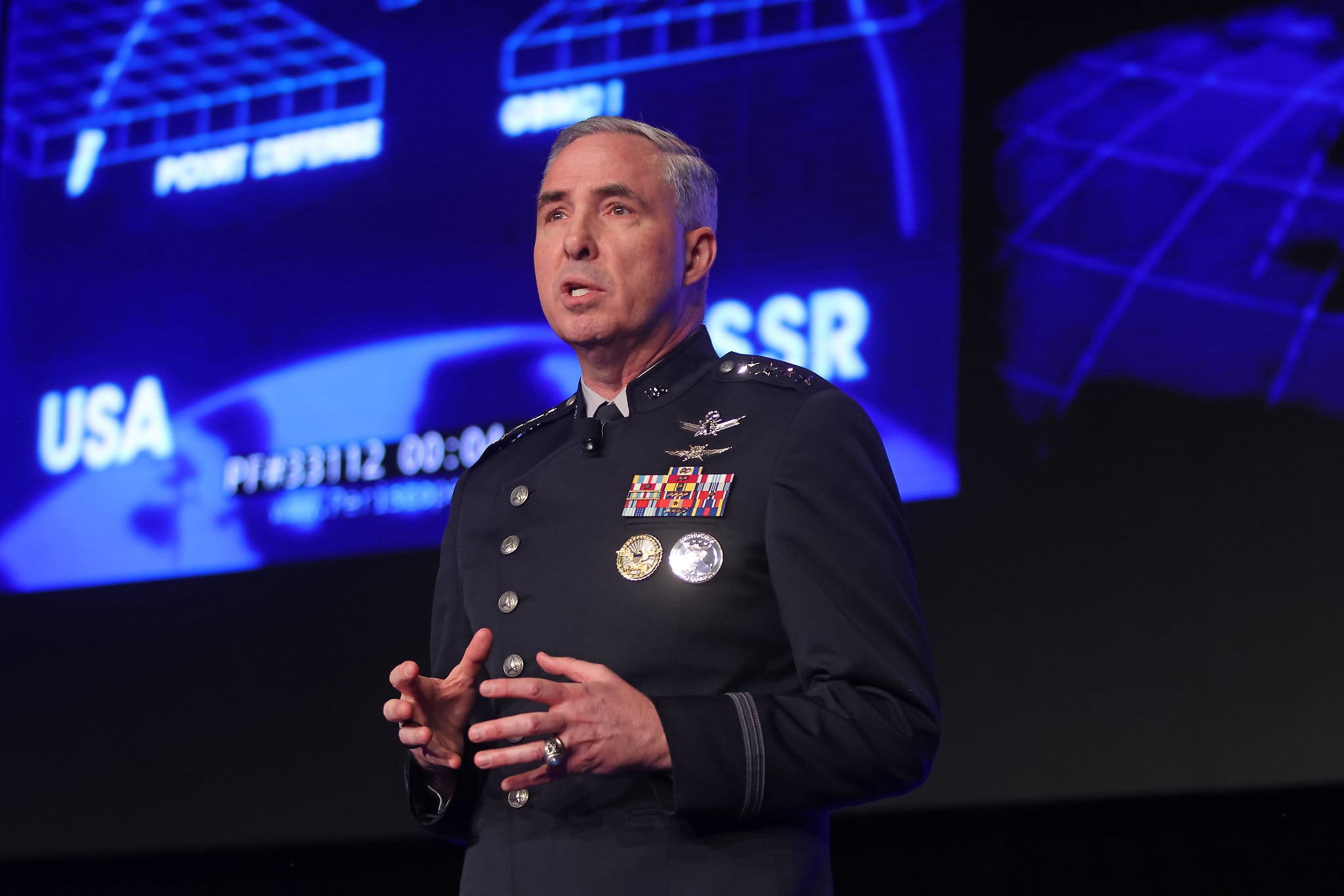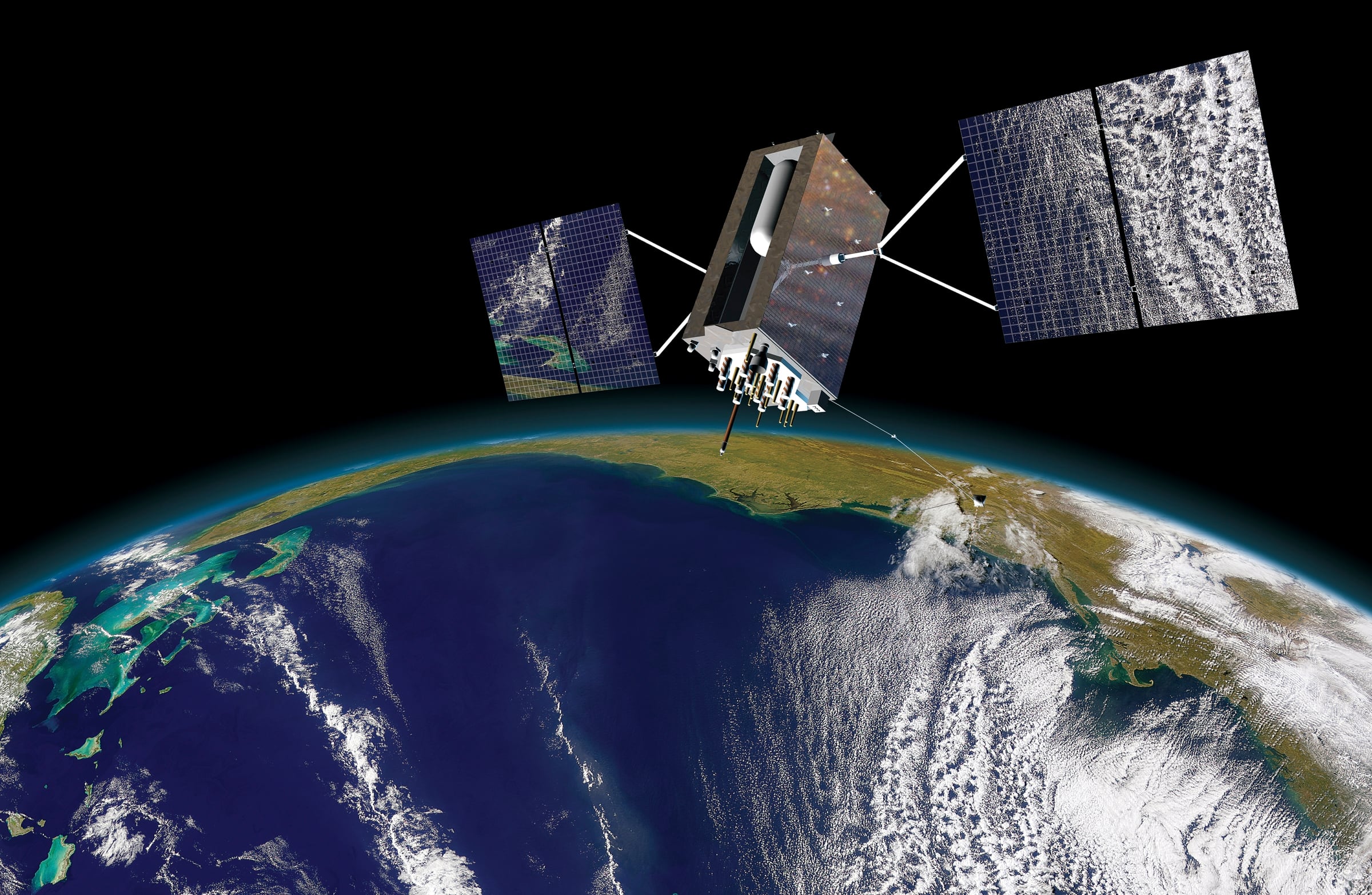COLORADO SPRINGS, Colo. — The Space Force’s top officer on Wednesday said his service’s day-to-day interactions with European allies haven’t been impacted by growing uncertainty about the United States’ relationship with Europe and the Trump administration’s shifting posture toward Ukraine.
“The military-to-military relationships, especially with my counterparts that I deal with on a routine basis …it’s business as usual,” Chief of Space Operations Gen. Chance Saltzman told reporters during a briefing at the Space Symposium in Colorado Springs, Colorado. “We’re still discussing the same challenges we had. … We’re still working the same basic collaborative issues that we’ve been working.”
Saltzman’s comments come as U.S. aid for Kiev’s defense has slowed and the Defense Department is moving troops away from a Ukraine support hub in Poland. In early March, the National Geospatial-Intelligence Agency temporarily froze Ukraine’s access to key satellite imagery amid a broader DOD pause on military aid to the country.
Defense Secretary Pete Hegseth has also urged Europe to invest more domestic funding in national security and rely less on U.S. support. At the same time, U.S. officials have said they want the European Union to continue to buy weapons from American companies.
Saltzman noted that much of the Space Force’s engagement with European partners comes through NATO and the service’s commitment to information sharing with allied nations. Broader decisions around support for Ukraine and U.S. troop levels in Europe are outside of the Space Force’s scope or responsibility.
In the same briefing, Air Marshal Paul Godfrey, the Space Force’s assistant chief of space operations for future concepts and partnerships, said the service and its partners recognize Space Force support to allied nations with nascent military space capabilities and organizations is crucial.
“If we just cut ties, let Europe get on with it, then they’re going to have to spend significant amounts of money, potentially go down dead-ends, developing the sort of capabilities that the U.S. has put together over decades,” he said.
That message undergirds a new international partnerships strategy the Space Force expects to roll out in the coming weeks. Saltzman previewed the document Wednesday during a speech at the symposium.
“Our international partnership strategy is built on one key concept: Coalition operations will be far more successful if we work together well before those contingency operations become necessary,” he said. “We’re not tightly coupled in our training, if we’re not reconciling our operational concepts, if we’re not integrating our capabilities, we will have a very steep learning curve when called upon in crisis or conflict.”
The strategy’s three main goals are to leverage individual nations’ unique expertise, improve information sharing and interoperability and integrate across the spectrum of operations — from force design to employment of capabilities.
Saltzman said the Space Force wants to embed more allies into its planning processes and acquisition strategies, expand joint exercises and coordinate personnel exchanges that allow partners to learn from one another.
He also emphasized that the strategy does not view partnership in space as a one-way street, but instead recognizes that all nations have something to contribute.
“The trick is in focusing on areas where we have a comparative advantage,” he said. “Maybe it’s space domain awareness or hosted payloads. Maybe it’s launch capacity or even simple geography for a ground station. I firmly believe that every contribution can make a meaningful impact on space security.”
Saltzman and Godfrey told reporters they’ve been floating the draft strategy to foreign partners this week at Space Symposium and will discuss it in greater depth Thursday as Saltzman hosts a gathering of international space chiefs representing around 20 different nations.
Then on Friday, the 10 nations who are members of the Space Force’s Combined Space Operations initiative will meet to discuss partnership opportunities for the coming year.
Courtney Albon is C4ISRNET’s space and emerging technology reporter. She has covered the U.S. military since 2012, with a focus on the Air Force and Space Force. She has reported on some of the Defense Department’s most significant acquisition, budget and policy challenges.







